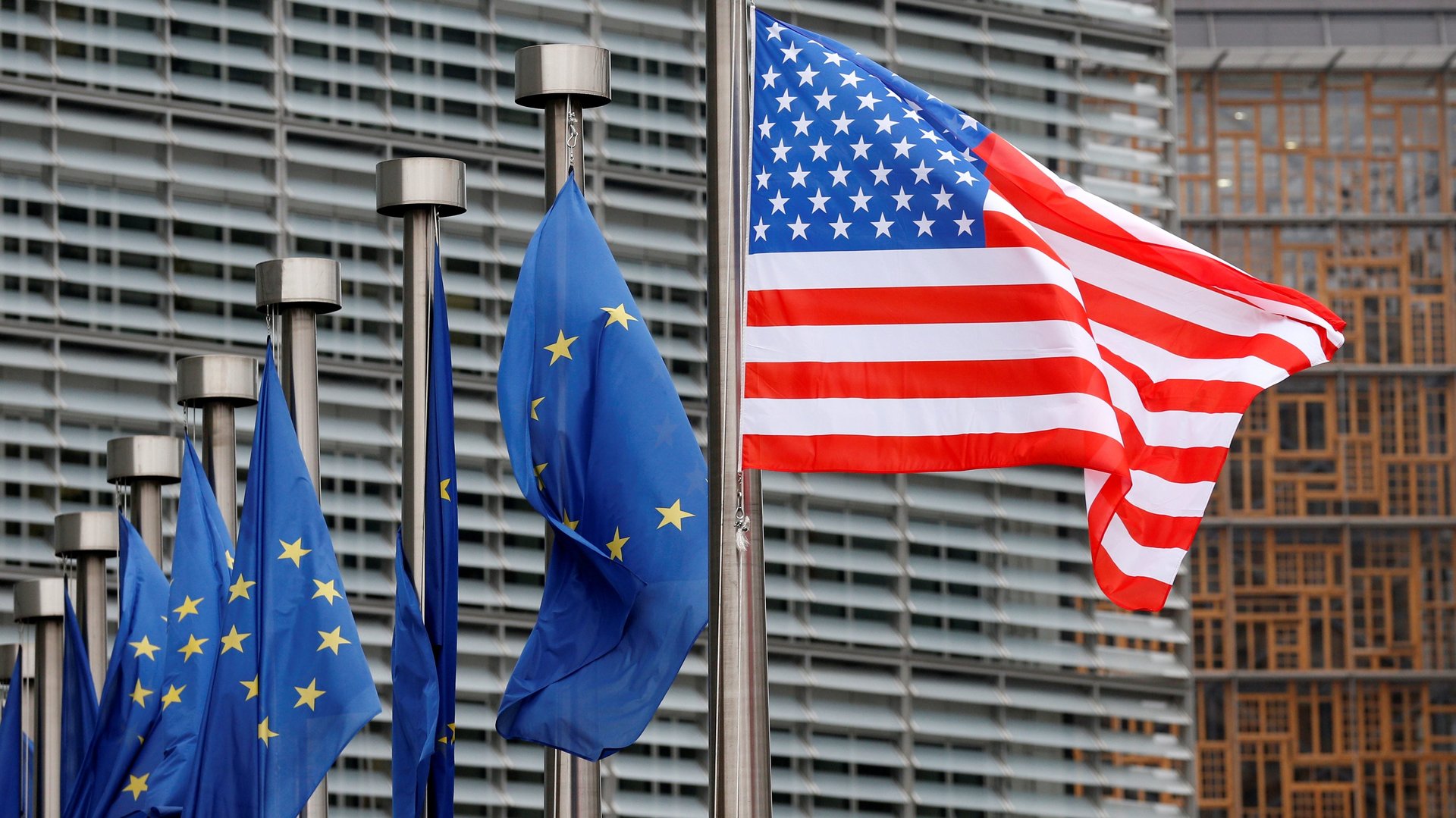Who would you side with in a conflict between the US and Russia? Neither, say most Europeans
Donald Trump has damaged America’s standing in the world in his three years as president, and nowhere is this more apparent than in Europe.


Donald Trump has damaged America’s standing in the world in his three years as president, and nowhere is this more apparent than in Europe.
A new report (pdf), published by the think tank European Council on Foreign Relations (ECFR), found that Europeans “no longer believe that the US can serve as the guarantor of their security.” They also overwhelmingly favor neutrality rather than siding with the US on global issues. The survey covered more than 60,000 people across 14 European Union member states, including France, Slovakia, Poland, and Spain.
When asked “whose side should your country take in a conflict between the United States and Russia?” the majority of respondents in all 14 EU countries said “neither.” Poland displayed the most pro-American sentiment, with 33% of respondents opting to side with the US. In Austria, that number was 4%. (That’s despite the fact that Russia is intensely disliked in Europe. According to a December 2018 Pew survey, 66% of Europeans across 10 countries had an unfavorable opinion of Russia.)
The survey also found that anywhere between 54% and 83% of respondents wanted their country to stay neutral in case of a dispute between the US and China. This, of course, is no longer a theoretical matter given the ongoing trade war between the world’s two largest economies. Here again, Poles were the most pro-American of the bunch, with 24% stating they’d like their country to side with the US. Only 4% of Austrians, 6% of Greeks, and 8% of Slovakians said the same.
The report isn’t all bad news for the transatlantic relationship. It also shows that, in all 14 EU member states, “large minorities of people believe that their own country has a special bilateral relationship with the US.”
Still, there has been a clear breakdown in Europeans’ trust in the US, and it’s part of a larger breakdown of faith in the global system. Many of the ways in which the world used to work, says Susi Dennison, a senior fellow at ECFR and the author of the report, have “now fallen away.”
“Europeans rightly feel that they’re operating in a world where the rules aren’t so clear,” she explains. “That is feeding into this idea … of taking its destiny into its own hands, precisely because they want to feel like they’re in safe hands, and they don’t at the moment.”